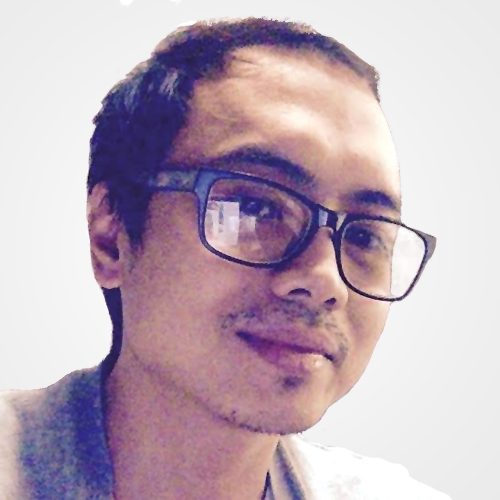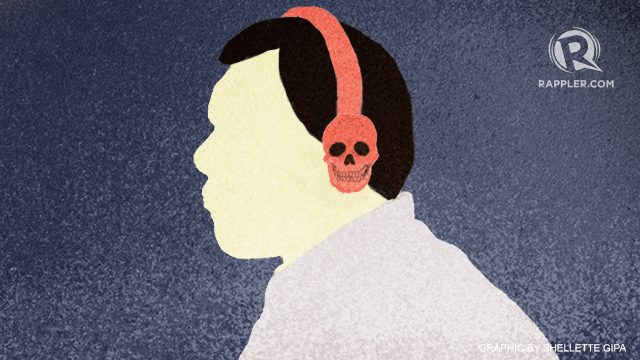SUMMARY
This is AI generated summarization, which may have errors. For context, always refer to the full article.

For over a year now, we have been appealing to President Rodrigo Duterte to stop his so-called “war on drugs” – and not because we do not want the drug problem to be solved but precisely because we want it solved and his “kill, kill, kill” approach is not the solution.
We have signed so many petitions. We have issued so many statements. We have marched on the streets. We have called on the other branches of government to intervene and fulfill their duty of checking and balancing the executive.
Not content with simply criticizing, we have pushed for a more effective alternative solution.
We have rallied behind a more comprehensive anti-drug program that would focus more on radically reforming the corrupt legal system, on increasing spending on public health and improving rehabilitation, and more generally, on addressing the roots of poverty.
In line with this, we have called on the President to put an end to “contractualization,” to secure higher wages and benefits, and to ensure job security. We have pushed for progressive tax reform to increase spending on social services and improve our public schools and hospitals while minimizing burden on the poor. We have demanded land and wealth redistribution to increase people’s purchasing power and boost the economy.
More generally, we have tried to make him support our fight for a real democracy – for the kind of democracy that previous presidents promised but failed to deliver, the kind of democracy that many were yearning for by rejecting the Aquino administration and putting him in office.
We have tried to bring him to join us build a new kind of society: a society that does not push the desperate to survive by engaging in the drug trade; a society that does not drive the alienated to seek momentary escape through opiates and narcotics.
In short, while we certainly can and should do more, it cannot be said that we have not tried to make the President listen.
And yet, instead of heeding our calls, Duterte has made it very clear that he has no intention of ending his so-called “war on drugs” – and that despite at least 3,000, if not 13,000, now dead as a consequence of this war, he’d be more than happy if many more were killed.
Though he has belatedly said that he will not necessarily pardon Kian’s killers, he has not said the same of thousands of others’ killers, and he has refused to say what we need to hear: that he is abandoning his brutal but ineffective approach to the drug problem and pursuing a different path.
Instead of addressing the roots of the problem, he has further legitimized contractualization and embraced the very same anti-poor and anti-worker policies promoted by his predecessors (and also supported by those vying to lead the “opposition.”)
He is railroading a regressive anti-reformist tax program which will squeeze the poor more while benefiting the rich.
And he has refused to push for, or has even stood against, more radical redistributive programs that could bring about more equitable development and prosperity.
Rather than leading our struggle for real democracy, he has been creating the conditions for an even more openly authoritarian – if not outrightly fascist – rule.

Instead of helping us build a more civilized society, he is plunging us to barbarism.
And if we allow him, he will continue to deploy all the power and the resources commanded by the presidency to escalate his brutal war on the poor, to establish a dictatorial regime, and to take us to a modern dark age.
We have a moral duty to stop this from happening.
Today, given the President’s refusal to hear our pleas, the only way we can do that is to do the one thing we have understandably been hesitant to do, and would have preferred not to do if he had given us a better choice.
We are now left with no other option but to assert our inalienable and democratic right to call for his ouster.
Why simple ‘regime change’ is not enough
But simply removing Duterte from office will not be enough to save us from the deep social, economic, and cultural morass from which Duterte emerged and successfully wrested power.
If he resigns and allows his constitutional successor to take over, we may enjoy a welcome reprieve from the killings and roll back the authoritarian threat. But since this successor has so far refused to break with the neoliberal dogma (and lately even refused to take a strong position regarding Duterte’s martial law), she is only likely to pursue the same (if slightly “softer”) anti-poor and anti-worker policies that both Aquino and Duterte are united behind.
If he is ousted by a military coup – as some military officials are reportedly advocating, we face a different threat: the junta that will replace him is also likely to just continue Aquino’s and Duterte’s pro-elite programs – though this time, with even more repressive means at their disposal. Neither will result in the alleviation of the widespread insecurity and desperation that drove so many among the middle-classes and the working classes to embrace Duterte and rally behind his fascistic regime in the first place.
Duterte and the elite opposition will predictably insist that these are the only alternatives: either you’re with Duterte – or you’re with the dilawan hacenderos or the right-wing generals.
But there is at least one other better possibility they don’t want us to even imagine: a democratic People Power uprising which ushers in a very different, because non-exploitative and truly radically-democratic and participatory system.
What exactly this new system is – how it will look like, how it will function, and what transitional steps should be taken for it to be established – should itself be the subject of more democratic debates and discussion: its very conceptualization and creation should itself already seek to practice the kind of radical, participatory democracy it seeks to establish.
But one thing is certain: it will be difficult if not impossible to bring this system into being for as long as Duterte is in power – or for as long as fascism gains ground and obliterates all spaces for dissent.
Only by building a broad, united, and democratic mass movement capable not only of ousting Duterte but also of resisting other elites desperate to return to power can we open up a better historic alternative.
But for that movement to arise, we need to have the vision and the courage to disobey and say what both Duterte and the elite opposition don’t want us to say: not just that Duterte must be ousted but that a new system, a new society must be constructed.
The danger of remaining silent
Many will likely say that to call for this now is foolish, reckless, or even infantile: The conditions, or the “balance of forces,” do not allow for it. Duterte is still too popular. The masa are not ready. We will only further repel or alienate them by making such “extreme” calls.
What we need to do, they are likely to argue, is to further “expose” Duterte and wait until he is already fully “exposed” before calling for ouster. What we need to do is to first “exhaust” all available options to seek relief from the killings and from creeping authoritarianism. To call for regime and systemic change now would only help the elite opposition and/or the coup plotters gain power, they will likely hold.
Their fears are certainly grounded, but their assumptions and conclusions need to be further interrogated.
Duterte is still popular precisely because those who are – or who should be – in a position to openly say that the emperor has no clothes still hesitate to do so for fear of being isolated.
The conditions are certainly not favorable. But conditions are not given: they are not going to change unless we try to change them – and the call for ouster and for system change is precisely an attempt to change those conditions. Duterte is still popular precisely because those who are – or who should be – in a position to openly say that the emperor has no clothes still hesitate to do so for fear of being isolated. The masa will be even less “ready” if they see that others – or that we ourselves – are also not ready.
There is no necessary opposition between further exposing Duterte and calling for his accountability through ouster; on the contrary, it is by calling for accountability through ouster that we can better expose Duterte because only by doing so can we begin to make them ask why he needs to be held accountable and why he needs to be ousted.
There is also no necessary opposition between exhausting all available remedies to stop the bloodshed and counter dictatorship and pushing for regime-plus-systemic change; on the contrary, only by pushing for more radical change can we have a better chance of stopping the bloodshed and countering dictatorship because only by doing so can we exercise more leverage to at least gain some relief.
In this light, to shirk from saying what needs to be said in the hope of avoiding unfavorable outcomes may, in fact, paradoxically bring about those very outcomes. That’s because if, or once, the Liberals and/or the military generals do take the initiative and call for ouster – while we ourselves remain hesitant and silent – it is these Liberals and/or these coup plotters who will then be able to define the alternatives and mobilize the masa behind them while we ourselves would find ourselves even more isolated than we feared: unable to offer our own vision, to rally the people behind our alternative, and to build a very different future. The old warning is timely: those who cannot – or who refuse to – represent themselves will be represented.
And if that happens, then we would have ended up helping the Liberals and/or the coup plotters gain power.
The alternatives
The tasks are definitely daunting and the dangers are certainly real.
But the alternative is even more horrible to contemplate: So many more Kian delos Santoses are likely to die. So many more of the poor are likely to be exterminated. Not just suspected drug dependents or peddlers but even “suspected” activists or critics will likely be silenced next. And millions more will continue to live unfree, inhuman lives.
This alternative need not happen – but only if we muster the courage to say “Duterte: resign or be ousted!” and only if we build a broader movement behind our larger call: Harangin ang diktadura! Baguhin ang sistema! – Rappler.com
Herbert Docena teaches sociology at the University of the Philippines, Diliman. His views do not necessarily represent the views of said institution.
Add a comment
How does this make you feel?
There are no comments yet. Add your comment to start the conversation.